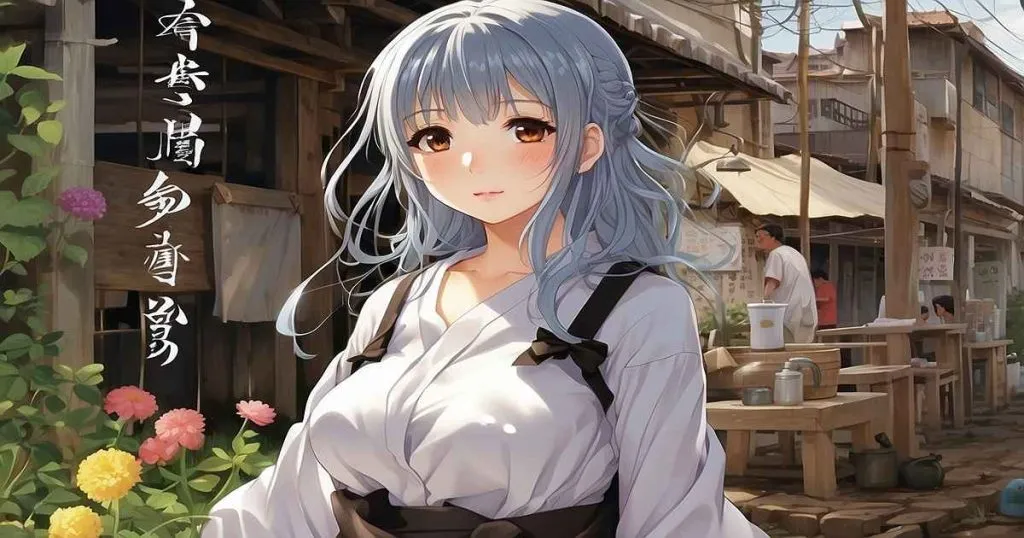mirroring the intricacies of familial connections and the progression of time. We should leave on an excursion to unwind the social embroidery woven inside this captivating Japanese articulation.
Figuring out the Diverse Significance:
At its center, “Komik Hisashiburi Ni Jikka Ni Kaettara Otouto Ga Ts Shiteta” means “it’s been a while, my more youthful sibling had developed.” Every part of this expression adds to its rich embroidery of importance:
Komik Hisashiburi: Brings out the opinion of rejoining with somebody after a drawn-out nonappearance, touched with sentimentality and commonality.
Jikka Ni Kaetta: Implies the demonstration of getting back, carrying with it a feeling of having a place and commonality.
Otouto Ga Ts Shiteta: Mirrors the perception of development or change in a more youthful kin. Representing the progression of time and the advancement of connections.
Context-oriented Importance in Japanese Culture:
Inside the social scene of Japan, familial bonds hold significant significance. “Komik Hisashiburi Ni Jikka Ni Kaettara Otouto Ga Ts Shiteta” catches the pith of these bonds. Filling in as a strong sign of the delights and intricacies inborn in kin connections. It mirrors the conventional upsides of dutiful devotion and family relationships. Underscoring the significance of association and common help inside the nuclear family.
Komik Hisashiburi Ni Jikka Ni Kaettara Otouto Ga Ts Shiteta Varieties and Use:
While the center parts of the expression stay steady, varieties in use might emerge in light of the setting of the discussion and the relationship elements between people. Whether traded between kin, guardians. Or dear companions, the expression fills in as a sincere articulation of get-together and affirmation of development.
Translation and Profound Reverberation:
Digging further into the close-to-home undercurrents of the expression, we uncover a blend of wistfulness, satisfaction, and despairing. It brings out recollections of shared encounters and the progression of time, provoking reflections on the progressions that happen inside familial connections. Through its piercing straightforwardness, “Komik Hisashiburi Ni Jikka Ni Kaettara Otouto Ga Ts” evokes an emotional response from perusers. Reverberating with the all-inclusive encounters of affection, misfortune, and development.
Social Experiences and Cultural Qualities:
The expression offers important experiences into Japanese cultural qualities. Revealing insight into the importance put on family, connections, and the progression of time. It highlights the significance of appreciating snapshots of association. And embracing the certainty of progress as an essential piece of the human experience.
Influence in the Realm of Manga:
As a common subject in Japanese manga, the expression “Komik Hisashiburi Ni Jikka Ni Kaettara Otouto Ga Ts” has made a permanent imprint on perusers around the world. Through its depiction in manga stories, it fills in as an impactful sign of the getting through force of familial bonds and the widespread excursion of development and compromise.
Conclusion:
Taking everything into account, “Komik Hisashiburi Ni Jikka Ni Kaettara Otouto Ga Ts Shiteta” rises above its phonetic limits to encapsulate the pith of Japanese culture and the profundity of human feelings. Through its layers of significance and profound reverberation, it fills in as an immortal articulation of affection, development, and the getting-through obligations of family. As perusers keep on diving into the universe of Japanese manga, they will find comfort and motivation in the sincere opinions epitomized inside this spellbinding expression.
FAQs
Indeed what does “Komik Hisashiburi Ni Jikka Ni Kaettara Otouto Ga Ts Shiteta” mean?
The expression means “It’s been too long, my more youthful sibling has developed” in English.
Is this articulation normally utilized in Japanese discussions?
Indeed, especially in casual environments among relatives or dear companions.
What feelings does this expression bring out?
It brings out a blend of sentimentality, euphoria, and despairing, mirroring the intricacies of familial connections and the progression of time.
Are there varieties of this expression?
While the center parts stay steady, varieties might exist in light of setting and relationship elements.
What social experiences does this expression offer?
It gives knowledge into Japanese familial qualities, underlining the meaning of association and the affirmation of development inside familial connections.
How does this expression reverberate with perusers of Japanese manga?
Perusers frequently track down reverberation in the general subjects of adoration, misfortune. And development depicted through this expression in manga stories, encouraging a more profound appreciation for familial bonds and the human experience.


